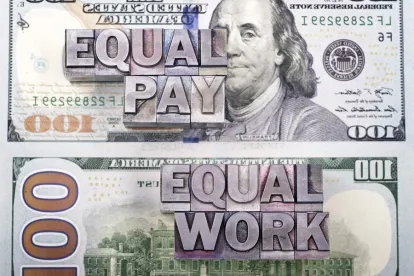Connecticut is the latest state to prohibit employers from asking prospective employees about past compensation. Effective January 1, 2019, employers may not ask (directly or through a third party) about a prospective employee’s wage and salary history unless the prospective employee volunteers the information.
According to Governor Dannel P. Malloy, the “Act Concerning Pay Equity,” signed on May 22, 2018, is an effort to redress pay inequities for women and people of color as the legislation intends to prevent employers from basing a prospective employee’s salary on past earnings.
Vermont’s prohibition was enacted nearly two weeks earlier, on May 11, 2018, and will go into effect on July 1, 2018. For more on the Vermont law, see our article, Vermont Bans Inquiries into Job Applicants’ Salary and Benefit History.
Who is an “Employer”?
Under the new Connecticut law, an “employer” is any entity with even one employee. The Act defines an employer as any individual, corporation, limited liability company, firm, partnership, public corporation, joint stock association, or voluntary association with at least one employee.
Who is Covered?
The term “prospective employee” is not defined by the statute, but it appears to encompass any individual who submits a job application or is interviewed by an employer.
Does the Act Apply to More than Wage and Salary History?
Yes, the Act applies to more than inquiries about wage and salary history. Along with prohibiting inquiries about wages, which includes rates for tasks or piece work and commission, employers may not ask a prospective employee about the value of other elements of the individual’s compensation structure.
Exceptions
An employer may ask what other components comprise a prospective employee’s compensation structure, as long as there is no inquiry about the value.
An employer still may request salary history information, but only when a state or federal law requires or specifically authorizes an employer to verify a prospective employee’s past income.
Private Right of Action
The statute expressly gives prospective employees the right to bring a claim against an employer in court. A prospective employee has two years after the alleged violation to bring a claim.
Employers may be liable for compensatory damages, attorney’s fees and costs, punitive damages, and possibly other legal and equitable relief for violating the prohibition.
What Should Connecticut Employers Do Next?
- Employers should refrain from asking about wages or salary history or the value of other compensation such as bonuses, stocks, or equity during the interview or hiring process.
- Employers should review their applications to make sure the applications do not request wage or salary information from previous employment.
- Employers using metrics, such as books of business, revenue, or sales history, in hiring should be careful to ensure that there is no corresponding valuation.
Employers in certain industries should be especially cautious during the application process. Those that hire salespeople, for example, likely will be particularly affected. Similar laws in other jurisdictions, such as New York City, have been careful to exclude measures of the applicant’s productivity (e.g., revenue, sales, and other production reports) from their prohibition, whereas Connecticut’s statute does not clearly provide such an exemption.
Employers also should ensure key employees in the hiring process are educated about the new limitations.





 />i
/>i

